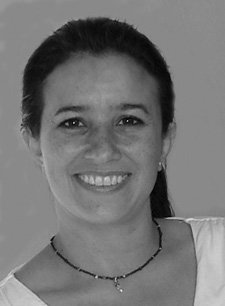


Zen Shiatsu Concepts & Definitions
What School is Zen Shiatsu Based On?
Principles of Zen Shiatsu Bodywork
The Importance of Zen Being
Putting it All Together
Next Steps
Home
Lesson 2: What school is Shiatsu based on?
Zen Shiatsu is a derivative form of Japanese therapy shiatsu, and is particularly popular in the United Kingdom and the United States. It was developed by Shizuto Masunaga, a graduate of the Japan Shiatsu College who published a book entitled Shiatsu in 1974. This was translated into English in 1977 and entitled Zen Shiatsu. The name "Zen Shiatsu" was not coined by Masunaga himself but by Wataru Ohashi, co-author of the English version.
Zen Shiatsu, also known as Masunaga Therapy, is a form of Meridian Shiatsu. A difference between Masunaga's Zen Shiatsu and earlier forms of shiatsu is that Zen Shiatsu uses not only thumbs and palms but also fists, elbows and knees.
Zen Shiatsu represents a return of the values of Traditional Chinese medicine, in comparison with anatomically or physiologically based Shiatsu (cf.20 Tsubo Shiatsu). While the Namikoshi school emphasizes Westernization at the expense of Chinese medical understanding, Masunaga advocated a return to Chinese Taoist practices such as Do-In and Ankyo within the context of Japanese Shiatsu.
Taoism refers to a variety of related philosophical and religious traditions and concepts. These traditions have influenced East Asia for over two thousand years and some have spread internationally. The Chinese character Tao means "path" or "way", although in Chinese religion and philosophy it has taken on more abstract meanings. Taoist propriety and ethics emphasize the Three Jewels of the Tao: compassion, moderation, and humility. Taoist thought focuses on health, longevity, immortality, wu wei (non-action) and spontaneity.
Reverence for nature and ancestor spirits is common in popular Taoism. Organized Taoism distinguishes its ritual activity from that of the folk religion. Chinese alchemy, astrology, cuisine, several Chinese martial arts, Chinese traditional medicine, fengshui, and many styles of qigong breath training disciplines are intertwined with Taoism throughout history.
Shizuto Masunaga founded a Japanese institute called the Iokai Center.Io means king/master of medicine, and kai means group/association. This center continues to the present day, propagating Masunaga's methods. Zen Shiatsu has proven to be widely influential throughout the US and the UK. Students of Masunaga include Wataru Ohashi, Pauline Sasaki, Ryokyu Endo and Stephen Brown.
The unique features of Zen Shiatsu, compared to Traditional Chinese medicine techniques such as acupuncture or other shiatsu techniques, are these:

